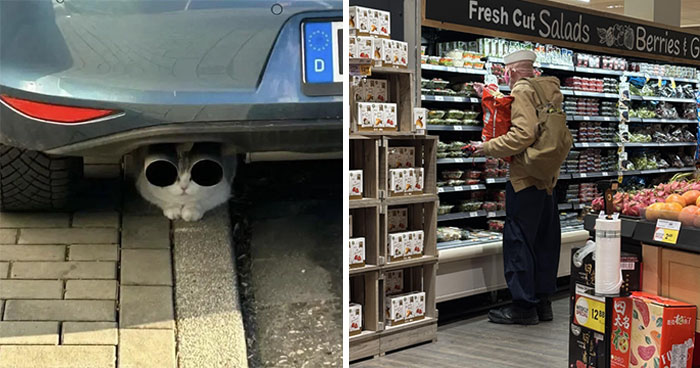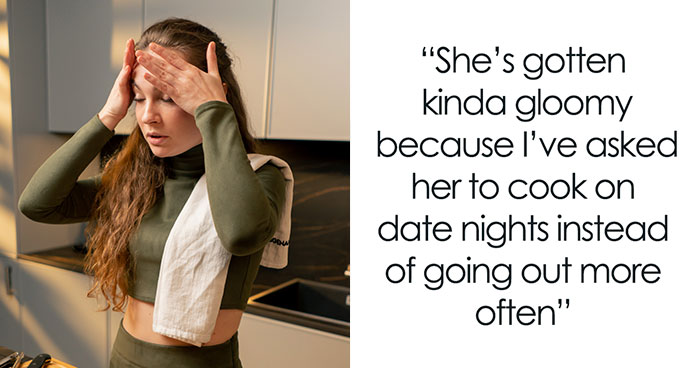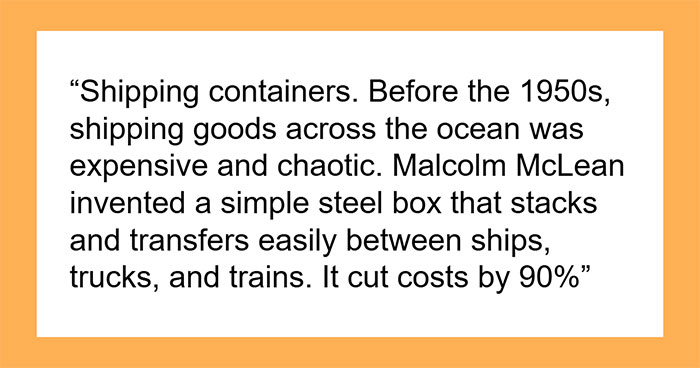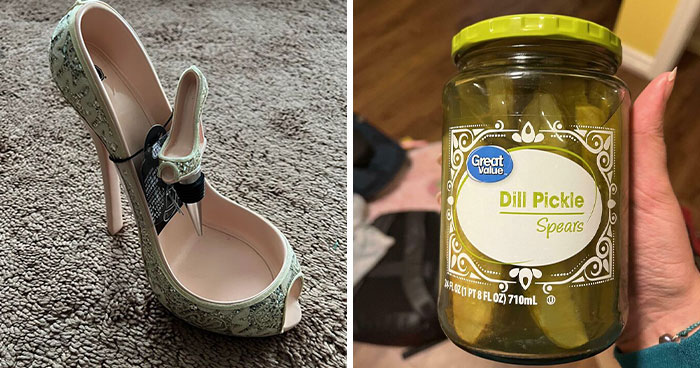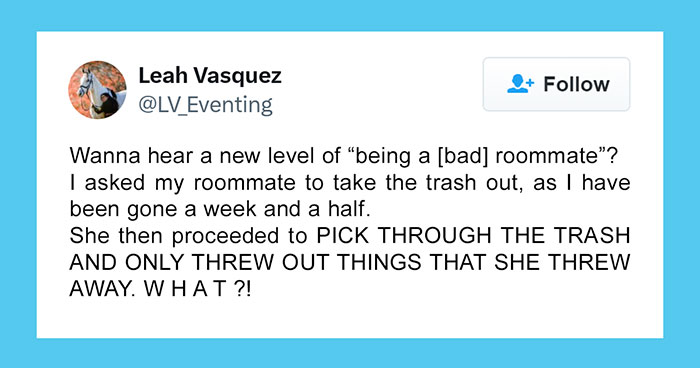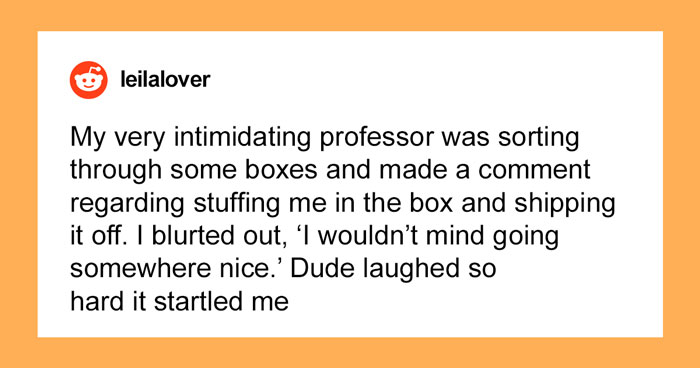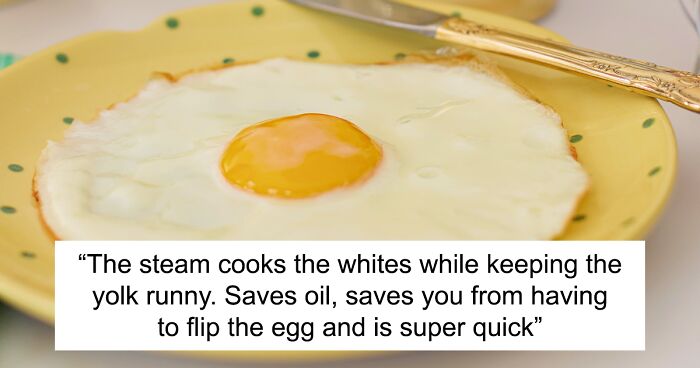
30 Pretty Simple Yet Game-Changing Kitchen Secrets, As Shared By Home Chefs In This Online Group
The season of holidays is over, and all the festive tables with lots of various foods remain behind us, so now is the time again to talk about what we cook and how we cook. In particular, about those small and at first glance completely insignificant details that ultimately turn out to be an absolute game changer.
Probably, almost every chef, professional or amateur, has their own cooking hack, which has become so familiar while behind the stove that it feels like their second skin. But at the same time, for other people, it may turn out to be completely unknown. And it is precisely these personal culinary secrets that this viral thread in the AskReddit community is dedicated to, a selection of the best materials of which we offer you today.
More info: Reddit
This post may include affiliate links.
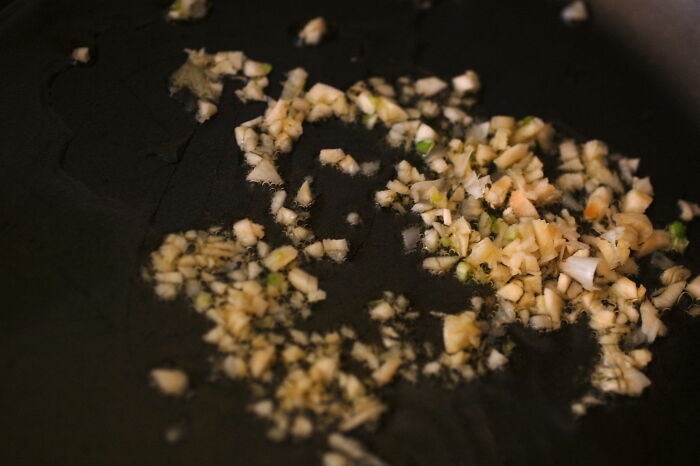 hopefully this is pretty well-known by folks in here but if you follow online recipes, they frequently get it backwards:
saute onions first, THEN garlic.
so many recipes say at the beginning to add chopped garlic, cook for a minute, then add chopped onions. that's a quick way to get burnt garlic and raw onions. onions first until just turning translucent, then add garlic. the moisture coming off the onions as they sweat helps keep the garlic from burning as it cooks as well.
hopefully this is pretty well-known by folks in here but if you follow online recipes, they frequently get it backwards:
saute onions first, THEN garlic.
so many recipes say at the beginning to add chopped garlic, cook for a minute, then add chopped onions. that's a quick way to get burnt garlic and raw onions. onions first until just turning translucent, then add garlic. the moisture coming off the onions as they sweat helps keep the garlic from burning as it cooks as well.
When making Bolognese sauce i put in raw garlic with all the crushed tomatoes. Not risking any burning.
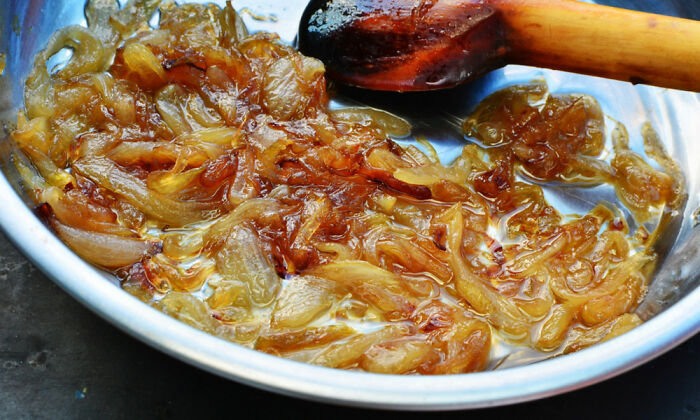 Whenever I need to caramelize onions I always add water to the pan and cover with a lid to steam the onions first. Eventually the water cooks off and you're left with very soft onions which saves you like 20 minutes for a big batch.
Whenever I need to caramelize onions I always add water to the pan and cover with a lid to steam the onions first. Eventually the water cooks off and you're left with very soft onions which saves you like 20 minutes for a big batch.
Also, drop in a nice big dollop of Butter to your caramelised onions and cook for a further 5 minutes ; takes the flavour up another notch or 5.
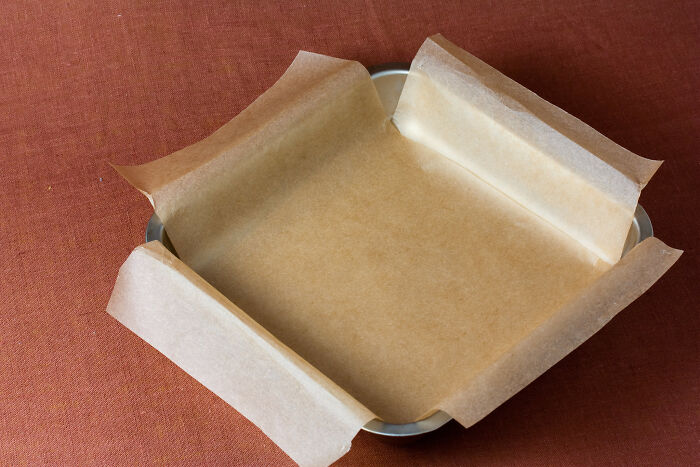 Off the top of my head :
I scrunch up a piece of parchment paper under the tap water and squeeze the water out before using it to line up cake and brownie tins so that it’ll stick to the sides better. The water will evaporate during the baking process and doesn’t affect the batter.
I put thick slices of day old bread under my chicken before roasting, they absorb the chicken juice so that the underside is not soggy + the bread edges become so crispy that I just nibble on them like roasted chicken flavored soaked crouton lol
Edit : lousy grammar
Off the top of my head :
I scrunch up a piece of parchment paper under the tap water and squeeze the water out before using it to line up cake and brownie tins so that it’ll stick to the sides better. The water will evaporate during the baking process and doesn’t affect the batter.
I put thick slices of day old bread under my chicken before roasting, they absorb the chicken juice so that the underside is not soggy + the bread edges become so crispy that I just nibble on them like roasted chicken flavored soaked crouton lol
Edit : lousy grammar
In the Middle Ages, the so-called “seven liberal arts” were distinguished, which any educated person had to master perfectly. And, really, it’s a pity that these seven arts did not include cooking - after all, just as a composer creates music from notes, so the ingredients are combined into a unique dish.
“If you are a chef, no matter how good a chef you are, it’s not good cooking for yourself; the joy is in cooking for others. It’s the same with music,” will.i.am once said, and I just can’t disagree with the famous musician. Well, just as any outstanding musician has their own “signature” technique, any cook should have their unique secret as well.
I cut most things with kitchen shears instead of knives. I've been told it's weird, but it works for me.
What is a scissor, but two knifes put together..? Or an Alligator chopper? 31568492-5...bc634.jpeg 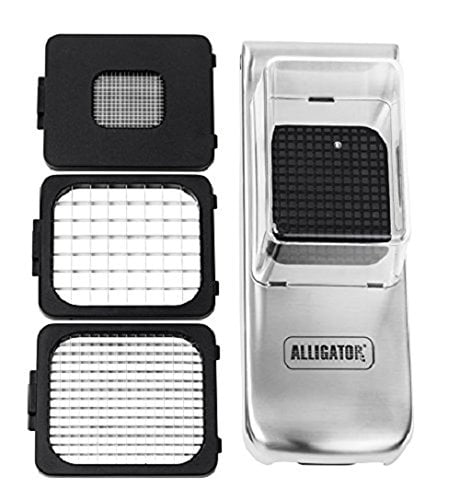
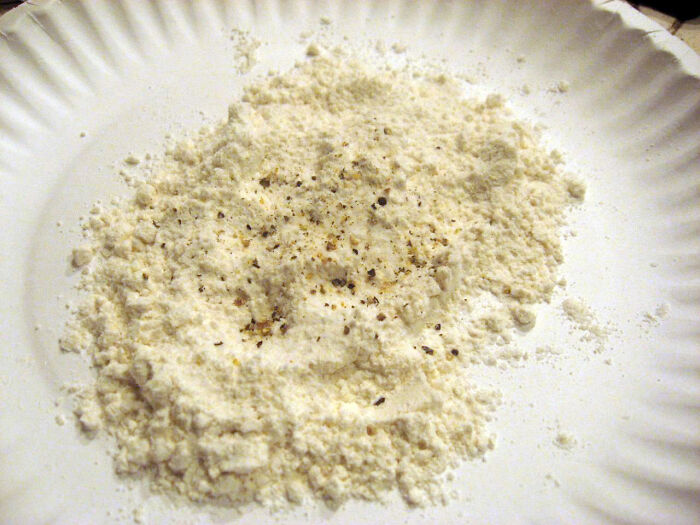 Idk if this is “unknown” but I add seasoning to my flour when I make a roux most of the time. Started with garlic powder and smoked paprika when I made my roux for white cheddar mac and cheese. It really enhanced it so I do it whenever I can.
Idk if this is “unknown” but I add seasoning to my flour when I make a roux most of the time. Started with garlic powder and smoked paprika when I made my roux for white cheddar mac and cheese. It really enhanced it so I do it whenever I can.
White pepper is the only seasoning bar salt that I'd normally use for a cheese sauce, but yes, it mixes better with the dry flour than if added later. Salt should be added only once the cheese is dissolved and will vary with different cheeses. Taste it while adding small amounts until there's just enough.
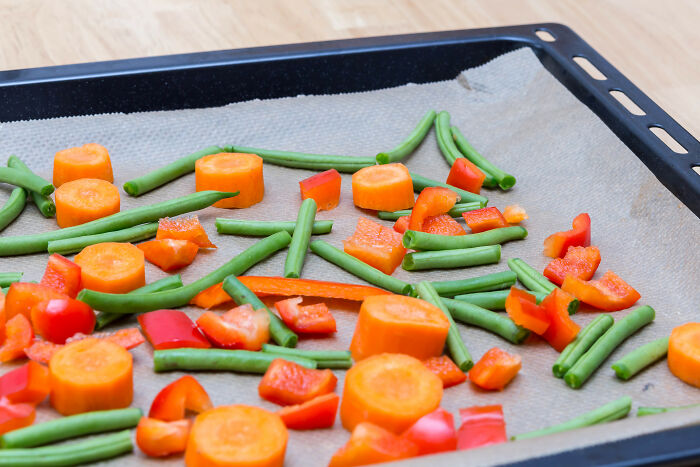 Preheat your sheetpan at 425F before adding your vegetables when roasting. Gives them a nicer sear, and cooks slightly faster.
Secondary tip on sheet pans, it's worth having a "clean" and a "seasoned" sheet pan for different uses. Clean for things like cookies, seasoned for savory applications.
Preheat your sheetpan at 425F before adding your vegetables when roasting. Gives them a nicer sear, and cooks slightly faster.
Secondary tip on sheet pans, it's worth having a "clean" and a "seasoned" sheet pan for different uses. Clean for things like cookies, seasoned for savory applications.
“Some secrets are passed down from generation to generation, and can be considered true ‘family treasures,’” says Roman Sardarian, a chef from Odessa, Ukraine, whom Bored Panda asked for a comment here. “For example, I was once told that in the process of preparing cutlets or meatballs, so that they better retain their shape and the minced meat does not stick to your hands, it is better for the cook’s hands to be moistened with water.”
“It seems like a small nuance, but it greatly facilitates and speeds up the cooking process. And, as far as I found out, many chefs really don’t know this. Well, now you know... Remember Neil Armstrong’s phrase about a small step for one person? Like this, a little culinary secret could sometimes help to make a leap for cooking as a whole," Roman ponders.
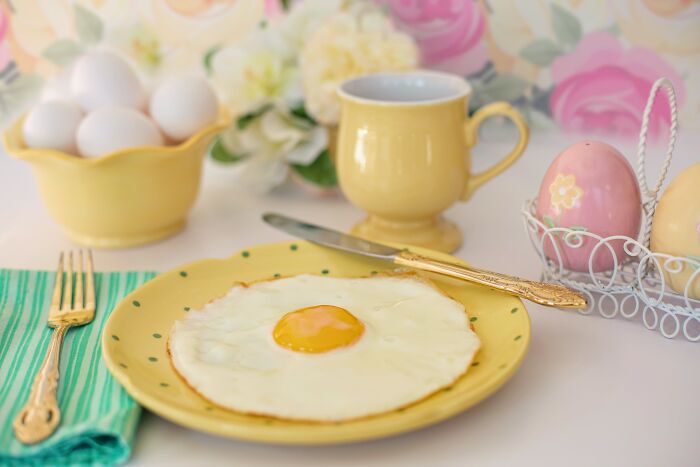 To get nice sunny side up eggs where the white on top of the yolk is cooked too, I use a little oil in the frying pan on a medium/high heat, crack in the egg, season, and once the white has started to cook I add about a tsp of water into the pan and place a lid on it, letting it cook for about a minute. The steam cooks the whites while keeping the yolk runny. Saves oil, saves you from having to flip the egg and is super quick.
To get nice sunny side up eggs where the white on top of the yolk is cooked too, I use a little oil in the frying pan on a medium/high heat, crack in the egg, season, and once the white has started to cook I add about a tsp of water into the pan and place a lid on it, letting it cook for about a minute. The steam cooks the whites while keeping the yolk runny. Saves oil, saves you from having to flip the egg and is super quick.
That’s what I do, I like a reallly runny yolk but some days I don’t want to surgically remove the goop on the top
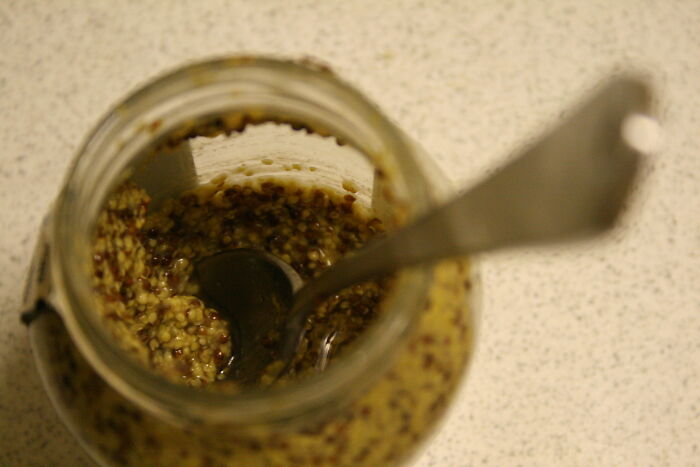 When i’m almost out of a condiment, i make a salad dressing in the condiment jar and shake vigorously to incorporate remaining condiment into salad dressing.
When i’m almost out of a condiment, i make a salad dressing in the condiment jar and shake vigorously to incorporate remaining condiment into salad dressing.
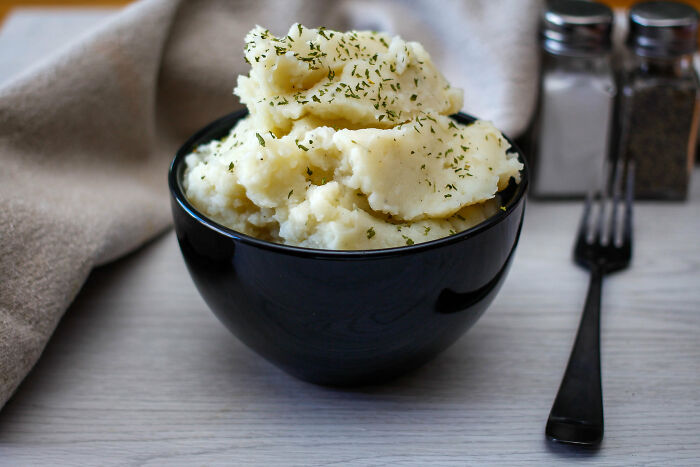 Instant mashed potato flakes are my go-to thickenerin any kind stew/chili. You don't have to whisk like you do cornstarch or flour.
Instant mashed potato flakes are my go-to thickenerin any kind stew/chili. You don't have to whisk like you do cornstarch or flour.
Potatoes are awesome thickiners, and they also add a heartiness to your dish. Instead of instant, I just grate a potato on a micro plan. You won't see or feel them in the dish, but you will notice the thickness and heartyness. People are always amazed when I tell them there are potatoes in what they are eating.
Often, such a secret can turn out to be a kind of placebo, having an effect solely in our head. As, for example, it happened in the animated movie Kung Fu Panda, where the main character's stepdad cooked delicious noodles with some “secret ingredient,” which, in fact... well, let's not go further, as perhaps for some this will be a plot spoiler. The main thing is that this hack really helps you, the rest is details.
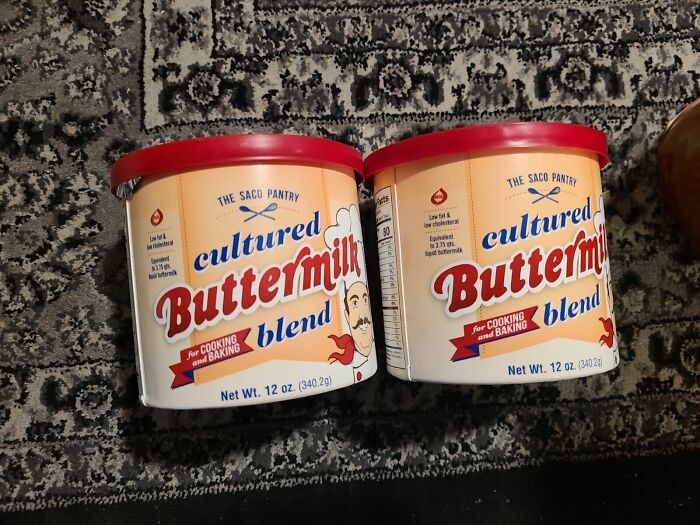 Powdered buttermilk.
I only recently found out about it but I have wasted so much buttermilk when all I needed was a bit.
Powdered buttermilk.
I only recently found out about it but I have wasted so much buttermilk when all I needed was a bit.
One tablespoon of white vinegar or lemon juice into a one cup measure. Fill to the one cup line with milk. Makes a cup of faux buttermilk that will work just fine for biscuits (US version) and pancakes and such.
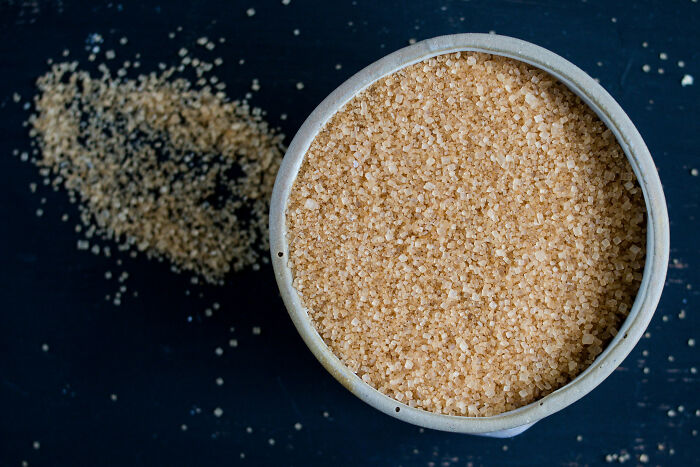 When your box of brown sugar is rock hard, instead of chipping it away with a knife, put it in the microwave for 30 seconds. it gets nice and soft and shakeable again.
When your box of brown sugar is rock hard, instead of chipping it away with a knife, put it in the microwave for 30 seconds. it gets nice and soft and shakeable again.
We could talk a lot more about the impact that small kitchen hacks like these have on what we end up eating, but perhaps it's just time to scroll this list to its very end and who knows, maybe some of these secrets will come in handy for you. Or perhaps you may also share your own secrets, for the good of other home or professional cooks, because you know, sharing is always caring.
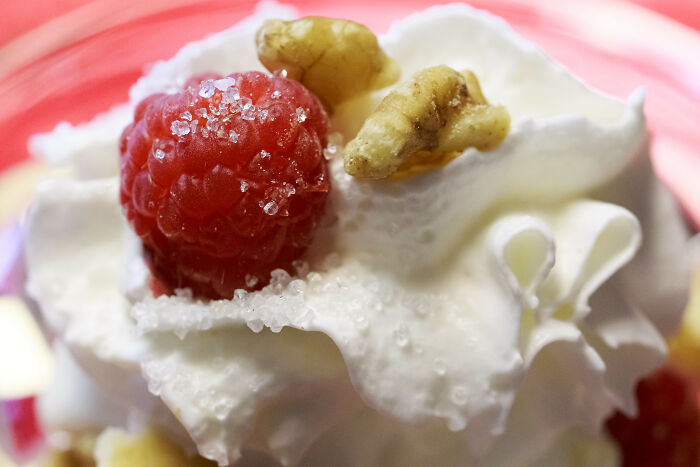 Not sure how common this is, but my MIL puts a couple tablespoons of instant vanilla pudding powder in heavy cream when she makes whipped cream for desserts. It helps it keep its shape when you put leftovers in the fridge.
Not sure how common this is, but my MIL puts a couple tablespoons of instant vanilla pudding powder in heavy cream when she makes whipped cream for desserts. It helps it keep its shape when you put leftovers in the fridge.
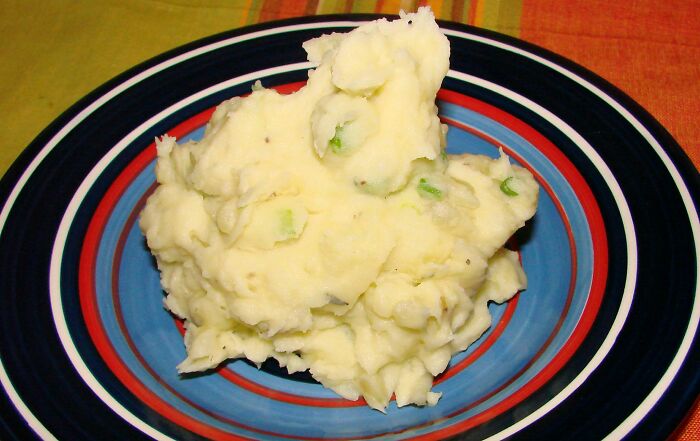 Friend of mine taught me to put herb and garlic cream cheese in my mashed potatoes. Tried dill pickle on my own and if you’ve never had dill pickle mashed you are in for a treat. The leftovers make fantastic croquets.
Friend of mine taught me to put herb and garlic cream cheese in my mashed potatoes. Tried dill pickle on my own and if you’ve never had dill pickle mashed you are in for a treat. The leftovers make fantastic croquets.
Also, to make ultra smooth Mashed potatoes, mash them with a masher, then beat them round a large bowl with a wooden spoon until the starches in the spuds start to get 'silky', rest them up, then give them another beating whilst warm ; difficult to describe but try it, you'll be amazed.
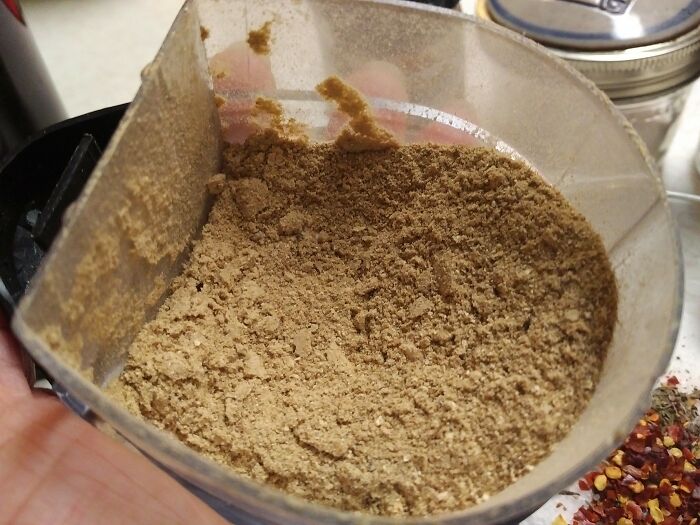 I’ve replaced salt in 75% of my cooking with mushroom extract powder from the Asian market, it still seasons but bumps the umami
I’ve replaced salt in 75% of my cooking with mushroom extract powder from the Asian market, it still seasons but bumps the umami
Yeah, you still need salt if you want balanced flavors. Most sources of umami are quite salty, e.g., Worcestershire sauce, fish sauce, shrimp paste, etc. All the basic flavors have a job to do. In addition to their own flavor, each one can enhance, balance, and counter another. Acid balances bitterness, sugar enhances sweetness, and so on. It's like the color wheel for flavors.
A couple off the top of my head: Air fry your whole eggs instead of hard boiling them. 250° F for 18 minutes, then plunge into cold running water immediately. Perfect eggs every time, and almost never fight with peeling them. I make a whole dozen at a time for lunch prep. Worcestershire sauce added to gravy, or any beefy tomatoey dish, will add depth and probably fix what's *missing* if you can't figure out what a dish needs. It's either that or a splash of wine or lemon juice. Over easy eggs cooked at medium-medium high heat on first side, flip, then turn off the pan but leave it on the burner to finish second side while you tend to your toast. Never overcook an egg again. Montreal steak spice is excellent on salmon filets. Since most recipes that call for tomato paste only require a few tbsps, I open a can and spread it into a silicone ice cube tray, freeze, pop out, and store the cubes. You can guesstimate how much you need and just melt it into your recipe, and save the rest without wasting what you don't need. Edit to add... freeze your ginger root and grate it that way! Less stringy, watery mess. Perfectly spicy snow is much easier to handle/measure.
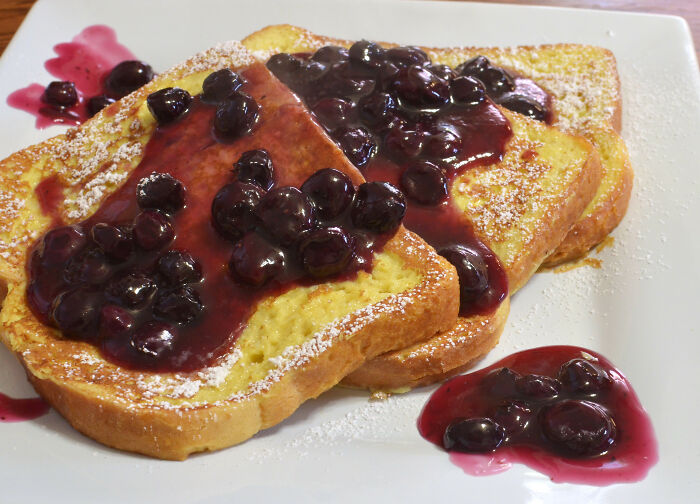 Dissolve your cinnamon in vanilla before adding eggs and milk to your batter for French toast. The cinnamon will incorporate so much better instead if just sitting on top of the mixture.
Dissolve your cinnamon in vanilla before adding eggs and milk to your batter for French toast. The cinnamon will incorporate so much better instead if just sitting on top of the mixture.
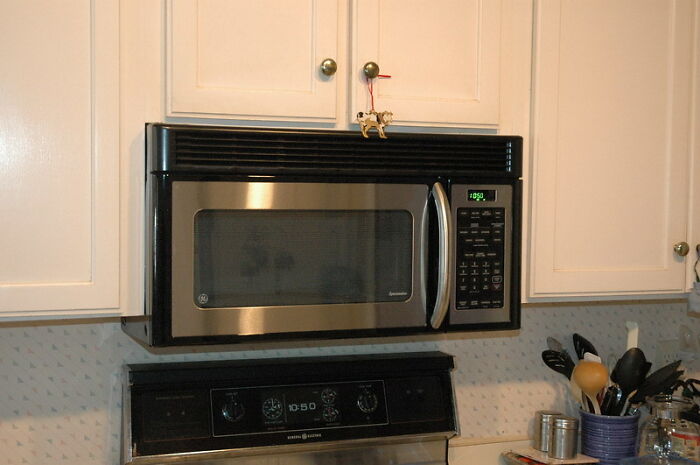 I keep a shot glass in my microwave. If I’m cooking anything that requires moisture (reheating rice, for example) I add water to the glass and turn the microwave on for 30 sec to warm the water. Then I put in whatever I’m making. The microwave gets steamy and warms things like rice and pasta beautifully.
Just don’t forget to remove the glass when making popcorn!
I keep a shot glass in my microwave. If I’m cooking anything that requires moisture (reheating rice, for example) I add water to the glass and turn the microwave on for 30 sec to warm the water. Then I put in whatever I’m making. The microwave gets steamy and warms things like rice and pasta beautifully.
Just don’t forget to remove the glass when making popcorn!
I keep a shot glass the top drawer of my desk, for those dull meetings...
 I use google translate to find authentic recipes in their original language and then translate them to English. Definitely has given me a leg up in my Asian cooking adventures
I use google translate to find authentic recipes in their original language and then translate them to English. Definitely has given me a leg up in my Asian cooking adventures
I still miss my translated from Chinese to English cook book from the 1980's ; some recipes were a bit bizarre, others were downright brutal ; one, as I remember started, 'first kill your Chicken' .......
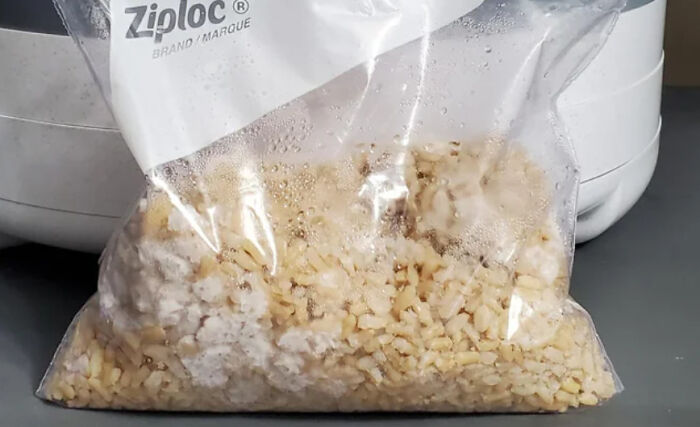 1. I always cook more rice than I need, then portion out the leftovers into Ziploc bags (1 cup of rice per bag) and put them in the freezer. When you’re ready to eat it, put it on a plate or bowl and sprinkle about a teaspoon of water over the frozen rice and use a damp paper towel to cover and microwave for 2 minutes for perfectly fluffy rice again.
2. To make green onions go a long way, I keep them in a mason jar of water and they’ll continue to grow, I just change out the water daily. Or you can cut them up and freeze them to use later in soups or stir fry.
3. Using steak seasoning for oven baked vegetables — way more flavorful than your typical salt and pepper.
4. Pouring heavy cream over any store bought, canned cinnamon rolls in a deep baking dish; this makes them softer, creamier, and fluffier and tastes similar to Cinnabon.
ETA: 5. To make any instant ramen soup broth taste close to restaurant quality, I mix the seasoning packet with a raw egg, 1 tbsp of kewpie mayo, and 1 tsp of minced garlic. Once you pour in the soup and noodles, the hot water cooks the eggs and thickens the broth that it tastes like a creamy tonkotsu base.
1. I always cook more rice than I need, then portion out the leftovers into Ziploc bags (1 cup of rice per bag) and put them in the freezer. When you’re ready to eat it, put it on a plate or bowl and sprinkle about a teaspoon of water over the frozen rice and use a damp paper towel to cover and microwave for 2 minutes for perfectly fluffy rice again.
2. To make green onions go a long way, I keep them in a mason jar of water and they’ll continue to grow, I just change out the water daily. Or you can cut them up and freeze them to use later in soups or stir fry.
3. Using steak seasoning for oven baked vegetables — way more flavorful than your typical salt and pepper.
4. Pouring heavy cream over any store bought, canned cinnamon rolls in a deep baking dish; this makes them softer, creamier, and fluffier and tastes similar to Cinnabon.
ETA: 5. To make any instant ramen soup broth taste close to restaurant quality, I mix the seasoning packet with a raw egg, 1 tbsp of kewpie mayo, and 1 tsp of minced garlic. Once you pour in the soup and noodles, the hot water cooks the eggs and thickens the broth that it tastes like a creamy tonkotsu base.
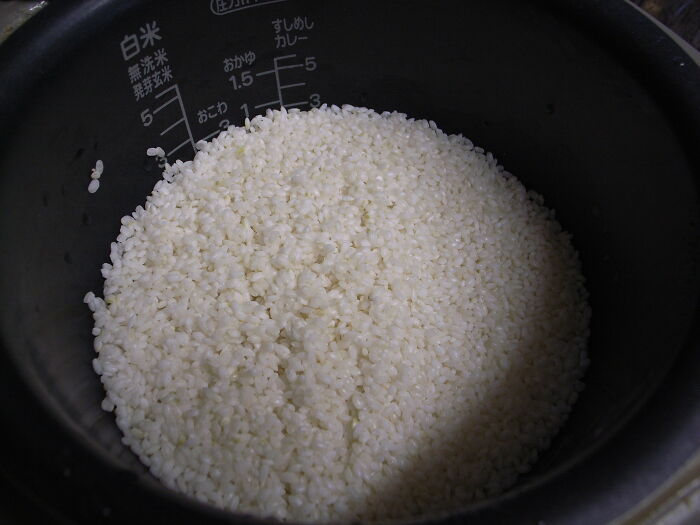 Growing up in Hawaii, everybody knows that the correct amount of water to add to a rice cooker is determined by touching your middle finger to the top of the rice and then filling the water to the first knuckle. It will come out perfect every time. If you start measuring stuff you're going to jack it up.
Growing up in Hawaii, everybody knows that the correct amount of water to add to a rice cooker is determined by touching your middle finger to the top of the rice and then filling the water to the first knuckle. It will come out perfect every time. If you start measuring stuff you're going to jack it up.
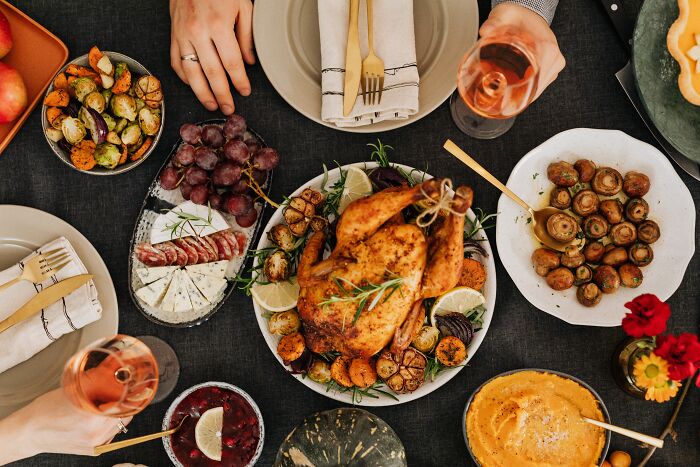 Before roasting, I slice the skin between the thigh and breast on whole chickens and turkeys and pull the leg quarter away from the carcass. This allows heat to circulate in the thickest part of the meat, evening out and lessening cooking time.
I learned this when I cooked brunches and holidays at the restaurant. Been doing it ever since.
Before roasting, I slice the skin between the thigh and breast on whole chickens and turkeys and pull the leg quarter away from the carcass. This allows heat to circulate in the thickest part of the meat, evening out and lessening cooking time.
I learned this when I cooked brunches and holidays at the restaurant. Been doing it ever since.
The handle of the knife goes into the palm of your hand, you actually grip and control your chef's knife with your pointer and thumb slightly above the handle at the base of the blade. It's wierd seeing people hack away at their veggies gripping the knife handle with their whole hand like a leaver. You get more control and your hands don't get as tired when you use the handle as a brace and a counterweight.
I can’t judge these people, not everyone is kitchen trained. The scary ones are the ‘steak knives to cut tomato’ people.
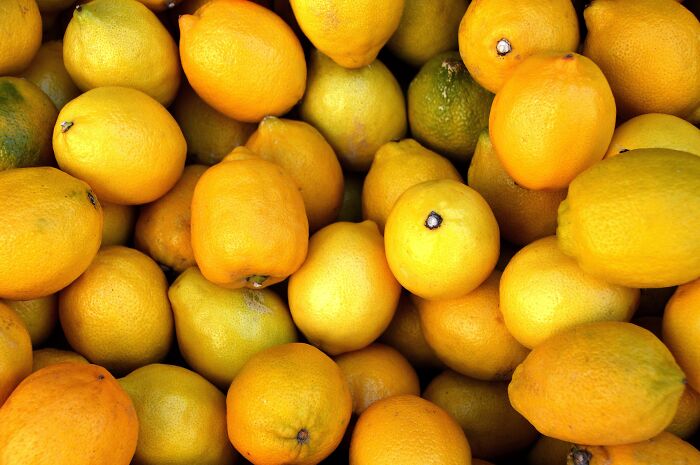 I dehydrate whole lemons by placing them on a sunny windowsill and turning them every few days to avoid soft spots and spoilage. It takes a few months then wipe them off with a damp cloth and store them in a dry container or zip bag. All the flavor of the juice goes into the rind and you just use a fine hand grater when you want a kick of the purest lemon flavor you have ever tasted! It’s perfect for when you want the concentrated flavor without adding any additional liquid to your recipe and unlike fresh lemon zest there’s no bitter taste!
I dehydrate whole lemons by placing them on a sunny windowsill and turning them every few days to avoid soft spots and spoilage. It takes a few months then wipe them off with a damp cloth and store them in a dry container or zip bag. All the flavor of the juice goes into the rind and you just use a fine hand grater when you want a kick of the purest lemon flavor you have ever tasted! It’s perfect for when you want the concentrated flavor without adding any additional liquid to your recipe and unlike fresh lemon zest there’s no bitter taste!
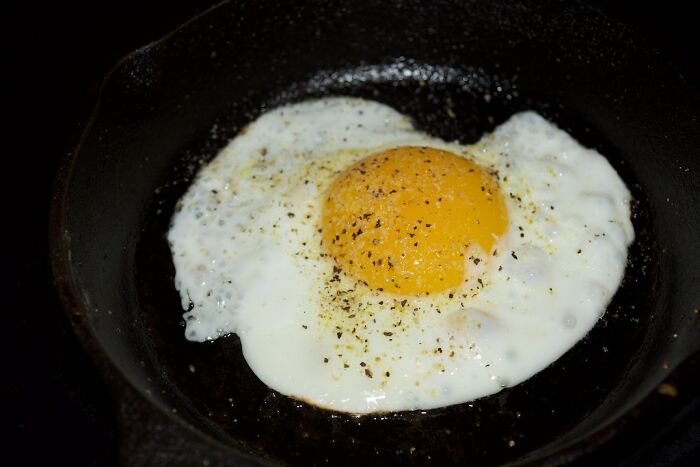 I use my fingers to center the yolk in a fried egg.
I use my fingers to center the yolk in a fried egg.
1 - I bake a half dozen potatoes once a week or so and keep them in the fridge. I dice them up and brown a little before adding eggs, etc for a hearty but easy breakfast. 2 - I keep my lettuce, spinach, etc on paper towels in a dishpan in the fridge with a large plastic bowl cover (like a shower cap). It stays fresh for over a week this way, instead of slimy in a clamshell or bag. 3 - i use 3 eggs for each cup of flour for pancakes and then eyeball the amount of milk (cream!) til pourable. it ups the "healthy" and also helps them to cook nice and tall.
#2 here I use a tupperware sallad bowl. Don't know if it's the vacuum or the high humidity. But I think it gets crisper?
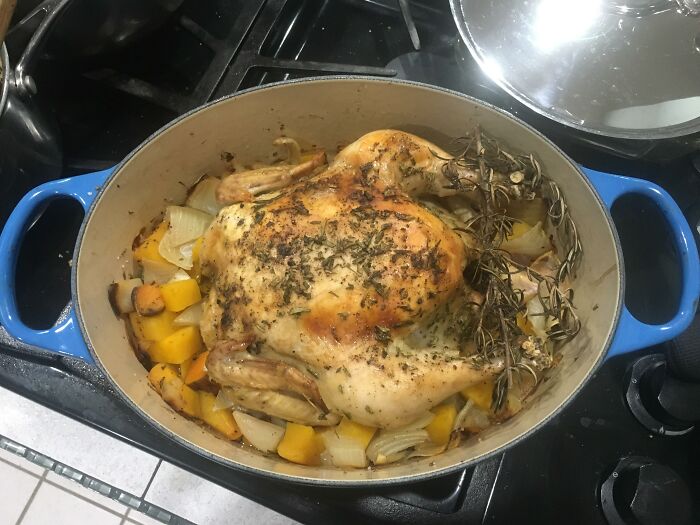 I like to roast a whole chicken in a Dutch oven with potatoes, carrots, celery and onion. Once cooked I take out the chicken, add some broth to the veggies + chicken fat, and blend that as the base for a soup.
I like to roast a whole chicken in a Dutch oven with potatoes, carrots, celery and onion. Once cooked I take out the chicken, add some broth to the veggies + chicken fat, and blend that as the base for a soup.
Wait, so they're adding all of those veggies, roasting them (in any chicken jus and fat that falls), and not eating them as a side dish? I'm sure the soup would taste amazing, since all of that is delicious, but I think I'd prefer roasted veggies with chicken than roasted veggie soup. Though, I'll defiinitely make a soup one of these times.
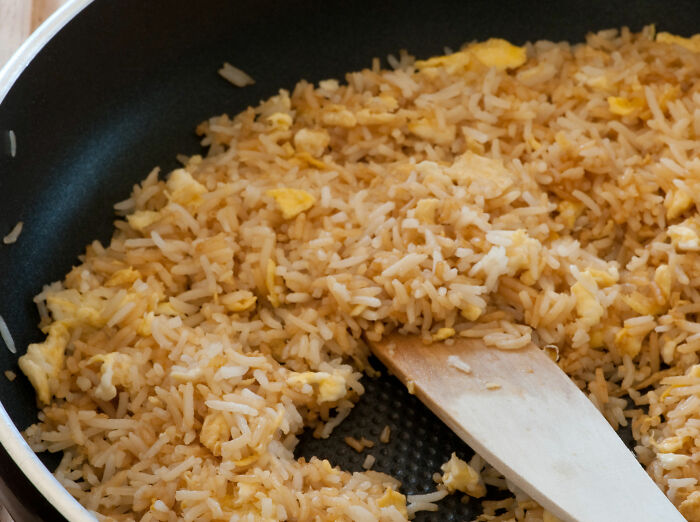 Fry the rice kernels until they turn Matte white before adding broth
Fry the rice kernels until they turn Matte white before adding broth
That's one way, fairly common method for Mexican rice recipes. Add 2.6 times the weight of stock as rice, some chopped onions and coriander, then simmer slowly with a tight lid for about ten minutes or until all the water's been absorbed, not removing the lid or stirring. Fluff up with a fork before serving.
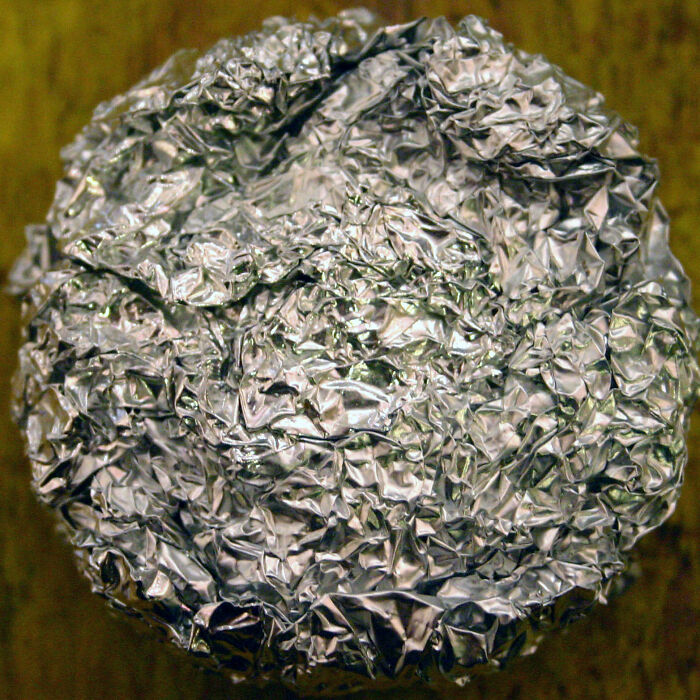 I’ll wad up 4 pieces of aluminum foil and place a rack on top of it to roast chicken or meats or anything really. It makes the rack stand about 3 inches or so above the sheet pan which allows for a lot of air circulation and better browning. Another plus is you can put vegetables under the meat and have the drippings fall onto them.
I’ll wad up 4 pieces of aluminum foil and place a rack on top of it to roast chicken or meats or anything really. It makes the rack stand about 3 inches or so above the sheet pan which allows for a lot of air circulation and better browning. Another plus is you can put vegetables under the meat and have the drippings fall onto them.
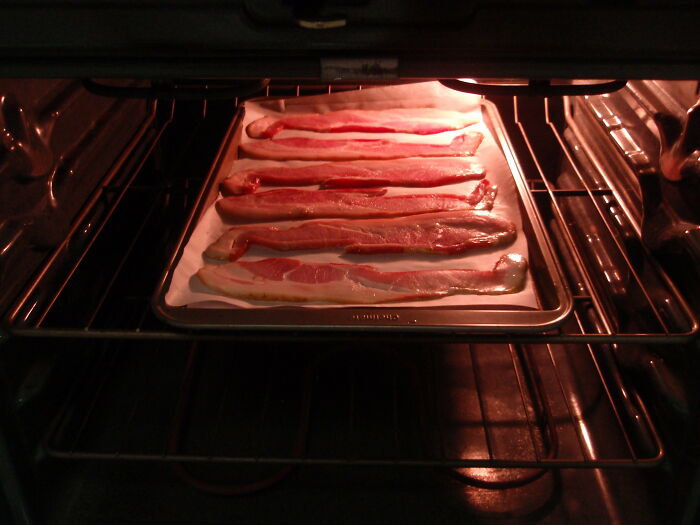 Bacon is always cooked in the oven. I season my bacon as well.
Bacon is always cooked in the oven. I season my bacon as well.
I’m gonna cook some I might as well cook it all then make baggies with three slices each for the freezer
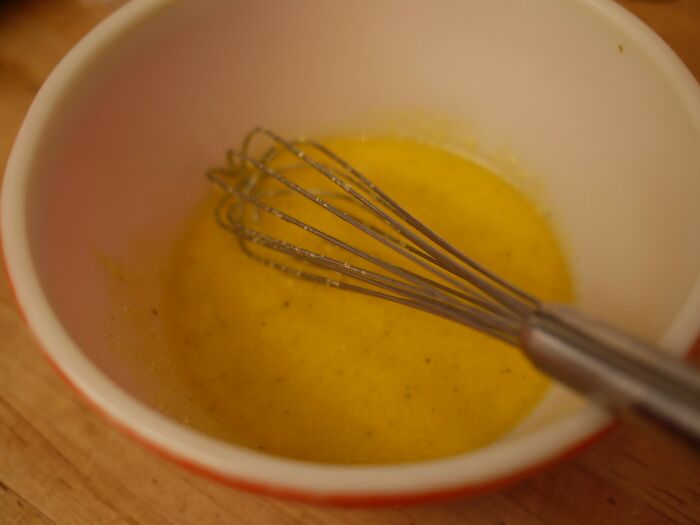 Adding a little cornstarch when I’m whisking eggs for scrambling. Makes them super fluffy.
Adding a little cornstarch when I’m whisking eggs for scrambling. Makes them super fluffy.
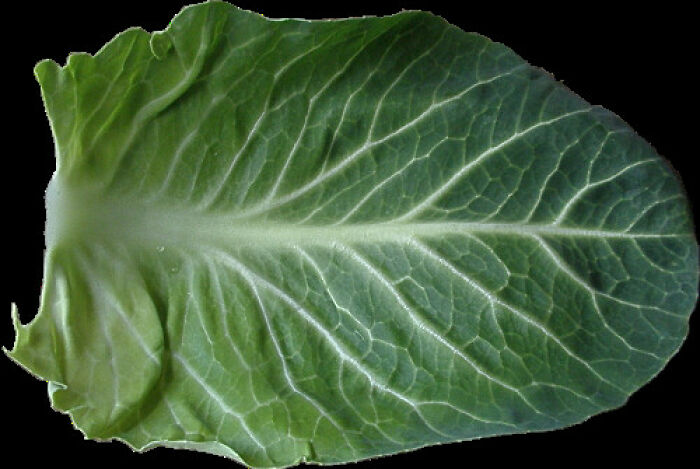 Lay sourdough on one layer of cabbage leaves. It's just the right amount of moisture to steam the bottom, keeping the crust from becoming rock hard.
Lay sourdough on one layer of cabbage leaves. It's just the right amount of moisture to steam the bottom, keeping the crust from becoming rock hard.
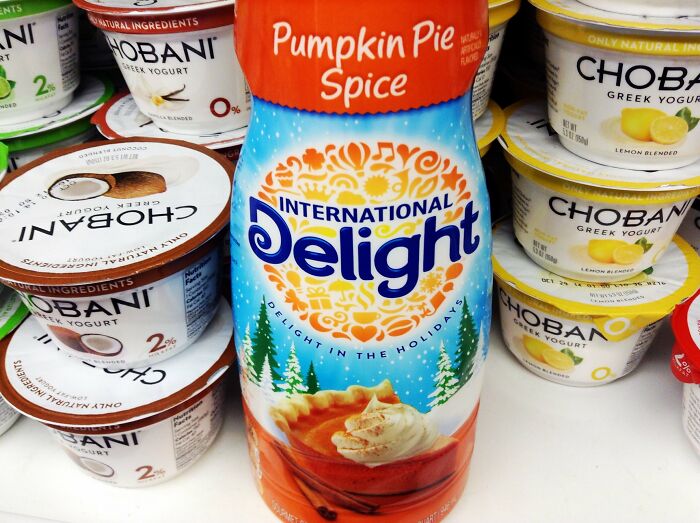 I use flavored coffee creamer (usually Hazelnut, but sometimes French Vanilla) in the egg batter when making French Toast. Also, I use a mixture of cinnamon, sugar, and nutmeg over butter, instead of maple syrup on the French Toast. The last part is how my family has been making it for years, since they immigrated from Belgium in the 1800s. The flavored creamer is my recent tweak on it.
I use flavored coffee creamer (usually Hazelnut, but sometimes French Vanilla) in the egg batter when making French Toast. Also, I use a mixture of cinnamon, sugar, and nutmeg over butter, instead of maple syrup on the French Toast. The last part is how my family has been making it for years, since they immigrated from Belgium in the 1800s. The flavored creamer is my recent tweak on it.
Flavored coffee creamer isn't even a dairy product. It's water, sugar, oil, emulsifiers, and artificial flavors. Hard pass. Only eggs and cream (or milk) will create that delicate custard that makes French toast so delectable. And I must have maple syrup or my New England card will be revoked.
Ikea sells a metal rack to hold potlids called the Variera. However, if you remove the small plastic parts the rack is also ideal to hold spare ribs and other things on the BBQ. And for 7 euro you can't really go wrong with it.
Cream cheese + garlic powder/fresh garlic + cooked noodles - Philly Fettuccine.
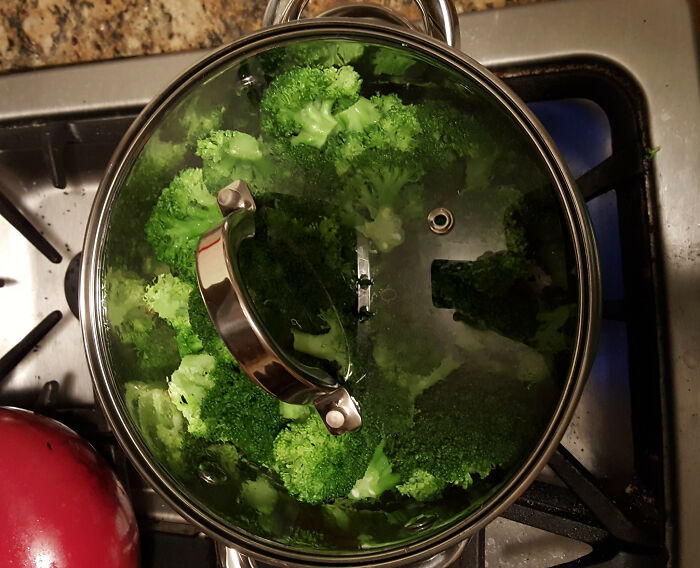 1) Sautéed/steamed broccoli - oil in pan, cook broccoli for a few mins, add a bit of water, cover and crank heat up to steam. No steamer basket needed!
2) Revive stale bread - run stale loaf under water, stick in 350 oven until warm.
3) Keep spring mix fresh - Line large pyrex bowl with paper towels, layer spring mix and paper towels, cover and stick in the fridge. The glass bowl seems to work much better than plastic at keeping the leaves from wilting.
1) Sautéed/steamed broccoli - oil in pan, cook broccoli for a few mins, add a bit of water, cover and crank heat up to steam. No steamer basket needed!
2) Revive stale bread - run stale loaf under water, stick in 350 oven until warm.
3) Keep spring mix fresh - Line large pyrex bowl with paper towels, layer spring mix and paper towels, cover and stick in the fridge. The glass bowl seems to work much better than plastic at keeping the leaves from wilting.
and do you mean Pyrex with a capital P? 😏 the nockoff have a small 'p'. 🤓 as read here on BP.
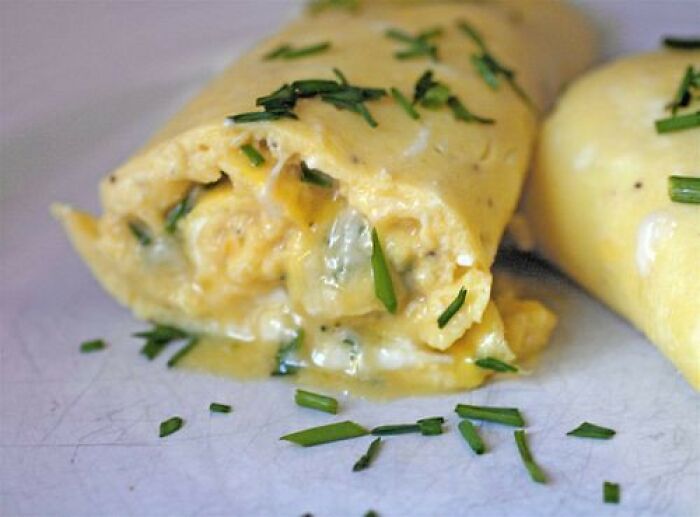 When I make a French omelet, I whisk the eggs in a metal sieve first. It removes all the little white stringy bits (the chalazae), and the finished product is a perfectly uniform, pale yellow.
I can't take credit for this, though. I learned it from watching The Bear.
When I make a French omelet, I whisk the eggs in a metal sieve first. It removes all the little white stringy bits (the chalazae), and the finished product is a perfectly uniform, pale yellow.
I can't take credit for this, though. I learned it from watching The Bear.
* Weave bacon into a lattice and bake it to cook it perfectly and keep it flat. * Add sodium citrate before you add cheese or hollandaise sauce to make a sauce that will not break after reheating or combining with another thing. * Soak/wash shredded potato in water, then squeeze dry and squeeze even more dry in paper towels to make crispy hashbrowns. * Use an immersion blender when whipping eggs. They will be fluffy and all eggs whites will be incorporated. * Use MSG. If you can eat tomatoes or mushrooms, you are already eating MSG, so use it. * When deep frying a turkey or a chicken, don't wait until the oil is 350F, you will get a boil over. Lower the bird in when the oil is 250F. * Don't crowd your pans. Crowded pan = steaming not sautéing. * Keep salt in a small bowl next to cooking area and add it by hand so you can feel the mass you are adding. * Keep a chunk of oak in your kitchen that you can light on fire, blow out and put into a small foil bowl in a covered pot to add a smoky flavor. Will take dishes to a next level. * Add cashews to boiled water for 10 mins then grind to add a non-dairy buttery flavor to a dish. * Creamed Spinach makes an amazing pizza sauce. * Juiced spinach liquid in place of water will make an amazingly vibrant green pasta.
I've seen to many fail YT videos of persons trying to deep frya turkey/chicken, with the open flame,för me not wanting to try! 🔥🚒
If I’m going to be cooking them later anyways, I always microwave garlic cloves for 8-10 seconds to make them way easier to peel.
Adding a touch of acid to my pasta sauce at the end of cooking (works well for cream sauces especially)
You've got to be joking. It will curdle the cream sauces, and the goal is to cut the acidity in the tomato sauce, not add to it.
I essentially steam my omelettes. Add scrambled eggs to pan on low heat, cover, and cook until set. Then add my cheese and filling before folding over onto a plate. Don’t think I have ever seen anyone else use this technique.
He would certainly hold all the aces for a delicious menu.
Load More Replies...Boiling onions to caramelize them is all I need to know about this article. That is NOT how you caramelized onions and just turns them into mush.
They didn't say to boil the onions. They said to add some water to the pan. HUGE difference.
Load More Replies...He would certainly hold all the aces for a delicious menu.
Load More Replies...Boiling onions to caramelize them is all I need to know about this article. That is NOT how you caramelized onions and just turns them into mush.
They didn't say to boil the onions. They said to add some water to the pan. HUGE difference.
Load More Replies...
 Dark Mode
Dark Mode 

 No fees, cancel anytime
No fees, cancel anytime 





























































